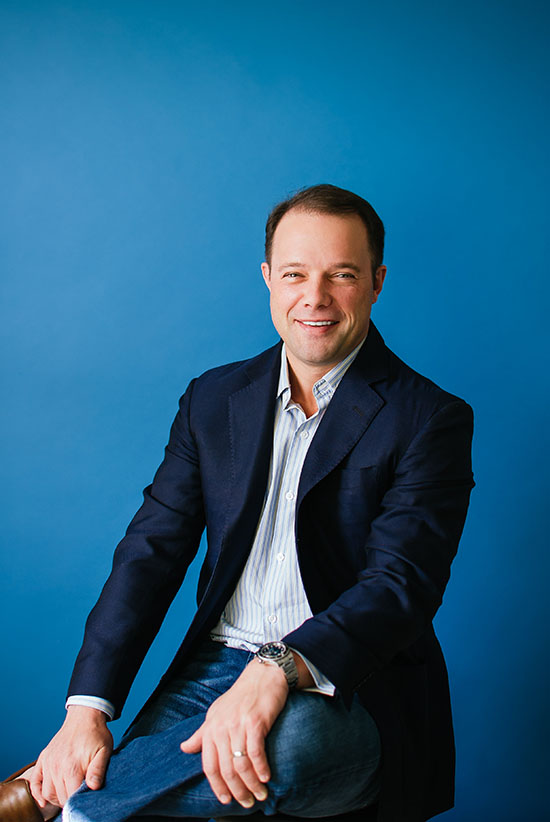
|
企业家内部网络是一个在线社区,美国创业领域里最有思想、最具影响力的商界人士将在此回答关于创业与职业的问题。今天我们的问题是:“在做出艰难的商业决策时,在什么情况下应该相信自己的直觉?”以下为Vanderbloemen Search Group的创始人及CEO威廉·范德布洛门的回答。 直觉可能是当今领导力领域里最热门的流行词。它是优秀创业者的标志——是一种别人教不会的领导品质。领导者在什么时候应该相信自己的直觉,又应该在什么时候后退一步,调查更多事实? 我的工作是帮助教堂和信仰类公司寻找优秀员工。在这个过程中,我学到了许多值得思考的重要理念: 如果直觉导致你偏离你的核心事业,不要相信它 大胆和乐观,是创业精神的标志。但任由这些品质控制你的行为,将让你背离自己的使命。作为一位年轻的领导者,我经常会产生一个好想法或看到一个机会,“感觉到它的存在”,然后采取行动。但最终,我意识到,我的直觉有一种强烈的“认同”倾向,即便这种直觉让我偏离中心。因各种所谓的机会而偏离轨道时,我往往会对最初的决定后悔不已。与任务驱动型组织的合作,让我知道事业才是成功的秘诀。 你的直觉往往会带来一些好的选择,助你取得胜利。但正如吉姆·柯林斯的《从优秀到卓越》第一章的标题所说:“优秀是卓越的大敌。”保持对使命的专注,即使在你的事业之外有光鲜亮丽的东西吸引你的眼球,也不要偏离方向。 辞退员工时,要始终相信自己的直觉 我是天生的乐天派,对人充满信心,这种天赋在过去几年里令我受益匪浅。许多创业者也有同样的品质。但乐观的缺点在于,它可能导致许多领导者相信,他们可以改造不再适合公司的员工。每次在辞退员工时犹豫不决,都会让我后悔莫及。我还发现,整个团队可能都已经知道应该让某个人离开,但领导者往往由于自身强烈的乐观精神,成为最后一个意识到这一点的人。推迟辞退员工的决定,最终将影响你在其他团队成员心目中的领导可信度。 在招聘领域有一句最有价值的格言:慢招人,快开人。在需要辞退员工时,相信自己的直觉——并且要行动迅速。 招聘时,要相信自己的直觉,但必须核查 罗纳德·里根的这句著名格言(Trust but verify),套用在根据直觉招聘员工上,再恰当不过了。领导者通常可以在很短时间内,对他们面试的某个人产生感觉。我最近在读一位CEO写的文章,她在文章中夸耀自己有通过7分钟面试进行招聘的能力。在做牧师的时候,我曾经以为自己可以迅速辨别一个人是否适合我们的公司或教堂,并且对这种能力引以为豪。 但我却大错特错。 我本应对某个人进行深入调查,但我却直接将他淘汰。我本应进行数百次搜索,深入研究一个人的履历、个性或配偶等各种因素之后再做出决定,但我却直接录用了他。 人类是极其复杂的生物。人的内心是混乱和复杂的。虽然优秀的领导者能够根据直觉产生初步印象,但招聘是一个充满焦虑的过程。即便最优秀的领导者的直觉,也会受到恐惧、痛苦、魅力和其他各种个性的影响。如前所述,在招聘时,要慢慢来。代价最昂贵的招聘,无疑是招错了人。 有良好直觉的领导者是优秀的领导者。但知道什么时候相信,以及如何相信自己的直觉,才能成为卓越的领导者。(财富中文网) 译者:刘进龙/汪皓 审校:任文科 |
The Entrepreneur Insider network is an online community where the most thoughtful and influential people in America’s startup scene contribute answers to timely questions about entrepreneurship and careers. Today’s answer to the question “When making a tough business decision, how do you know when to trust your gut?” is written byWilliam Vanderbloemen, founder and CEO of Vanderbloemen Search Group. Intuition may be the biggest buzzword in leadership today. It is the mark of great entrepreneurs—the un–coachable quality of leadership. When should leaders trust their guts, and when should they step back and investigate more facts? In my work helping churches and faith-based companies find great staff, I have learned a few key concepts worth considering: Never trust your gut if it takes you away from your core cause Boldness and optimism are hallmarks of the entrepreneur’s spirit. Letting these qualities take precedence, however, may deviate from the mission. Many times as a young leader I would have a great idea or see an opportunity, “feel it,” and take the leap. But I finally realized that my instinct had a strong tendency to lead with a “yes” attitude, even when it pulled me away from focus. And when the opportunity pulled me outside of the cause, I always regretted the decision later. Working with mission-driven organizations taught me that cause is the secret to success. Your gut instinct will always have some good options that could lead to a win. But, as Jim Collins titles the first chapter of Good to Great, “Good is the enemy of great.” Stay focused on your mission, even when the shiny object that leads away from your cause catches your eye. Always trust your gut when it comes to firing someone I am an eternal optimist and a big believer in people, which is a gift that has served me well over the years. Many entrepreneurs have the same quality. The downside of this optimism causes many leaders to believe they can rehabilitate an employee who no longer fits the organization. Every time I hesitated to let someone go, I regretted it. I have also come to believe that because of leaders’ fierce optimism, they are usually the last on the team to realize it is time to let someone go. Delaying the decision will eventually erode your leadership credibility with the rest of the team. If there is one axiom in hiring more valuable than any other, it’s this: Hire slowly and fire quickly. When it comes to parting ways with a team member, trust your gut—quickly. When it comes to hiring, trust your gut, but verify This famous adage by Ronald Reagan could not be truer regarding the idea of hiring from the gut. Leaders are usually able to have a feeling about someone they are interviewing in a very short time. I recently read about a CEO who was boasting about her ability to hire using seven-minute interviews. When I was a pastor, I would take pride in the belief that I could tell immediately whether or not someone would be a fit for our company or church. I was so wrong. I wrote people off who I should have further investigated. I hired people without looking deep into their histories, personalities, or spouses, among many other factors after performing hundreds of searches. People are wonderfully complex. They are terribly messy. While good leaders will be able to get an initial impression from their guts, hiring is an anxiety-ridden process. Even the best leader’s gut can be influenced by fear, pain, charisma, and a slew of other characteristics. As mentioned earlier, when you hire, do it slowly. The most expensive hire you will ever make is hiring the wrong person. Leaders with a good guts are good leaders. Leaders who learn when and how to listen to their gutsbecome exceptional. |






